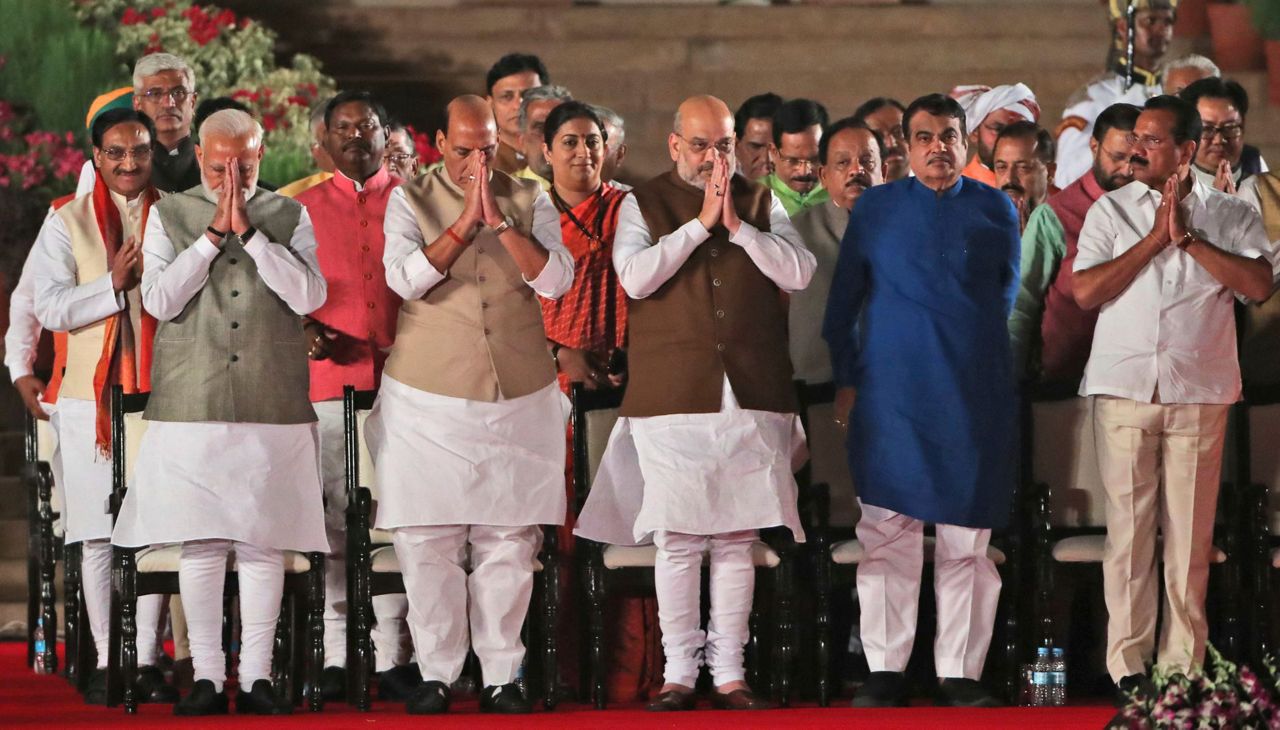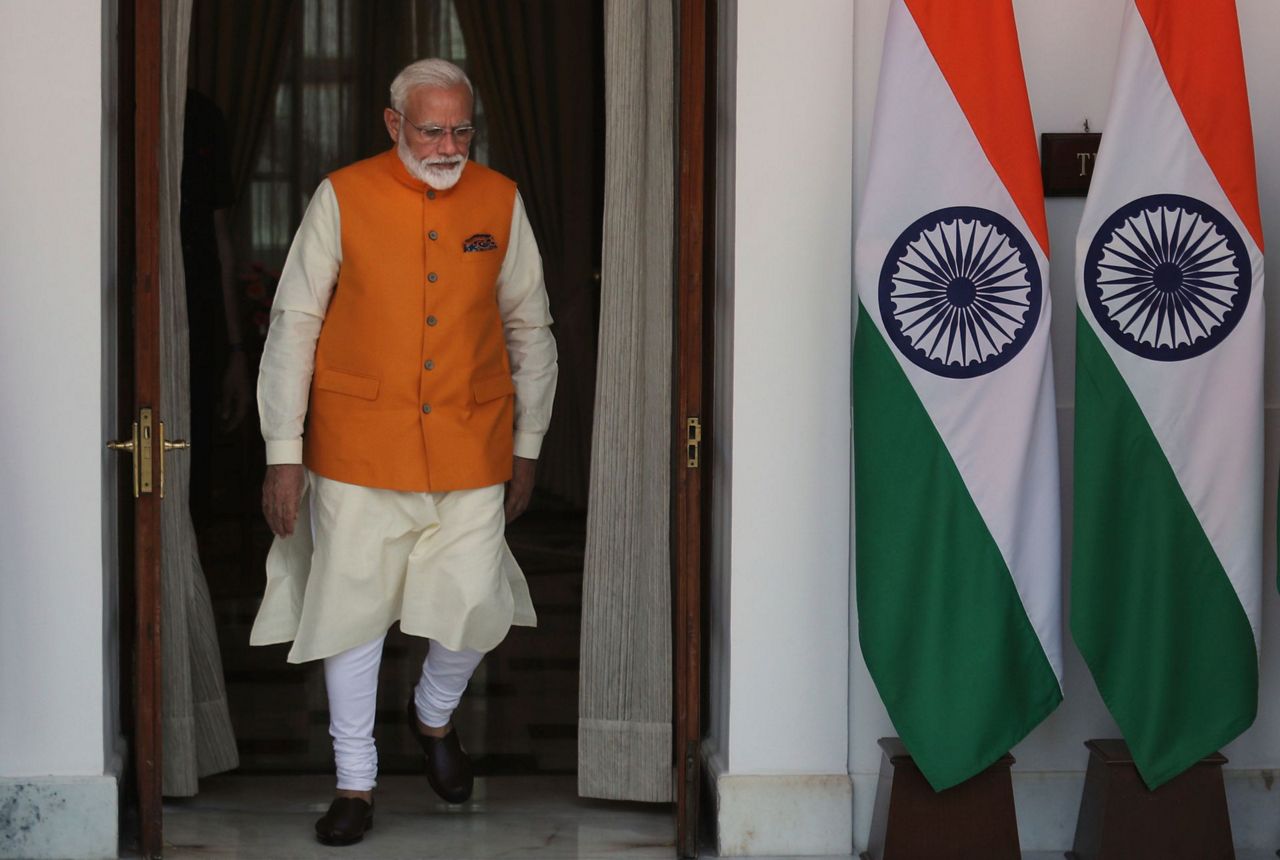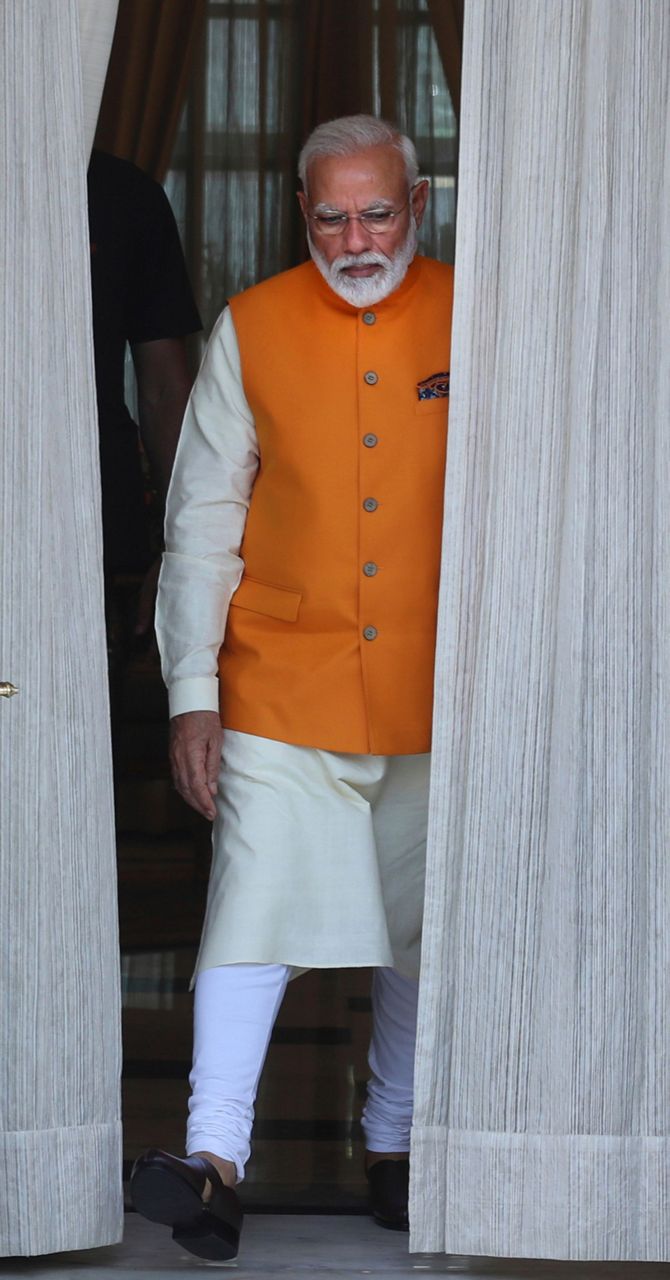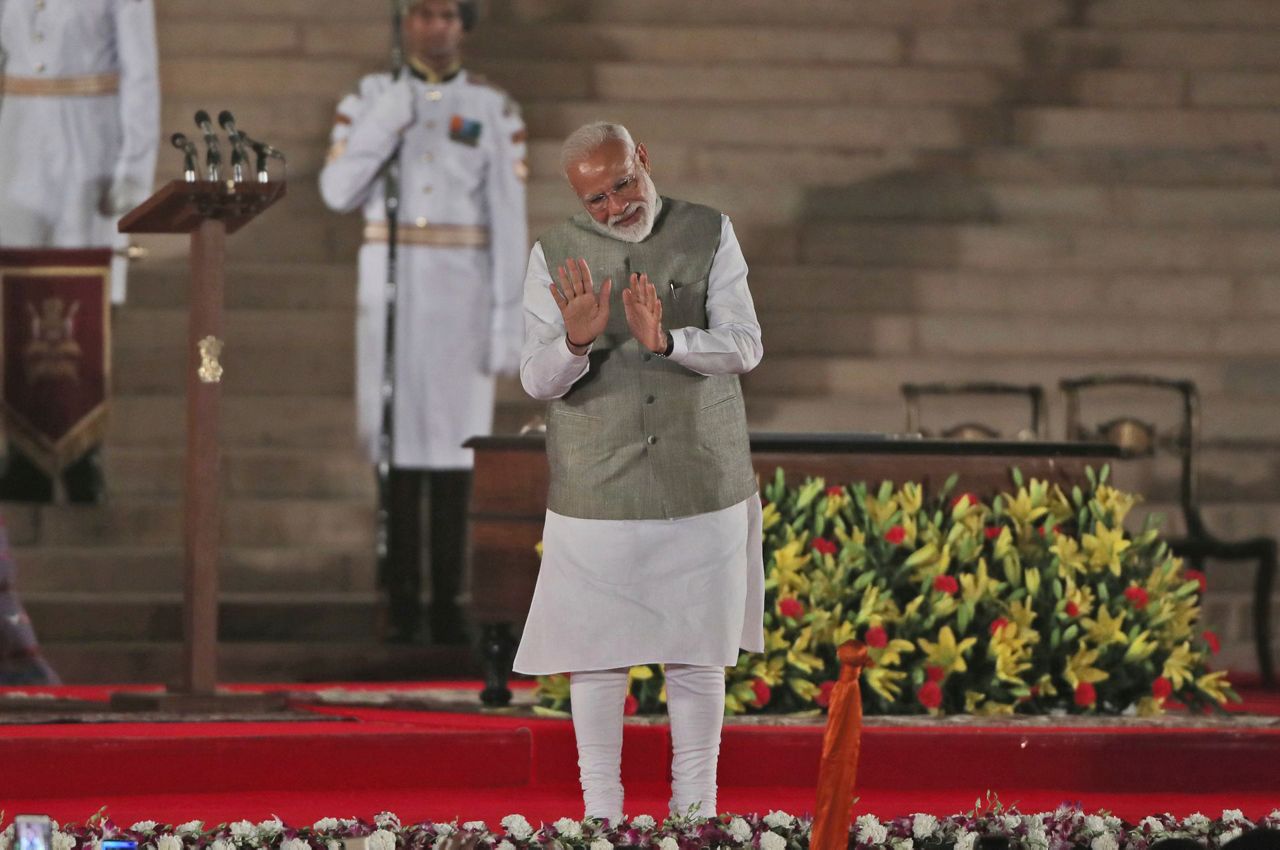NEW DELHI (AP) — India's newly sworn-in Prime Minister Narendra Modi named a Cabinet on Friday, handing the powerful home affairs portfolio to the president of his Hindu nationalist party credited with delivering him a thunderous reelection and appointing a former diplomat to signal the government's focus on foreign policy.
Bharatiya Janata Party President Amit Shah, a Hindu nationalist hard-liner who on the campaign trail referred to Muslim migrants from neighboring Bangladesh as "termites" and pledged to pass a controversial citizens registry, was named home minister, one of 24 Cabinet-level posts allocated by the prime minister's office, India's press information bureau said.
Shah, who served in the same role in Gujarat when Modi was the western state's chief minister, a role akin to governor, will be in a key position to redraw India's political map according to the BJP's Hindu-first agenda, said political commentator Arati Jerath, who frequently writes opinion pieces for Indian newspapers.
"Whether it is Kashmir, or terrorism, or pushing through the citizens registry against the resistance in India's northeast, Shah is very tough and he won't hesitate to defy conventions or norms to achieve his goal," she said.
Modi's first-term defense minister, Nirmala Sitharaman, was put in charge of finance, the first woman to hold the post. Although not an economist, Sitharaman has proven an able administrator of Modi policy who describes herself first and foremost as a BJP worker.
In a surprising move, Modi named Subrahmanyam Jaishankar, the former ambassador to the United States and China, as minister of foreign affairs.
Jaishankar, a technocrat who also served as India's foreign secretary during Modi's first term, helped shape foreign policy through the lens of Indian's national interests, including shouldering a larger burden of responsibility for security and economic development in the Asia-Pacific region. India is the world's 5th largest economy by GDP, according to the World Bank,
Modi was sworn in for a second term as prime minister on Thursday. In addition to his duties as prime minister, he will also take leadership of the departments of atomic energy and space, and "all important policy issues," the press information bureau said.
The BJP won 303 seats in the 542-member lower house of Parliament in the elections, giving it a decisive mandate and the ability to form a government without other parties.
But Modi faces immense challenges including India's slowing economy, high joblessness and low agricultural prices that have hurt farmers.
The country of 1.3 billion people seeks swift economic change.
One of the new government's first actions, however, may be to dissolve by executive order an article of the constitution that insulates Indian-administered Kashmir, a Himalayan region split between India and Pakistan rule but claimed by both in its entirety, from land ownership by non-Kashmiris.
Jerath said Shah and Modi are looking at Israel's settlements in the West Bank as a model.
"They want Hindus in the (Kashmir) Valley to dilute the majority status Muslims enjoy there," she said.
Such a move could lead to greater communal violence against Muslims nationwide, which Human Rights Watch documented was on the rise in Modi's first term, and intensify an ongoing conflict in parts of Kashmir, where more civilians are joining an active resistance movement that sees nearly-daily deadly clashes between rebels and soldiers.
Copyright 2019 The Associated Press. All rights reserved. This material may not be published, broadcast, rewritten or redistributed.






